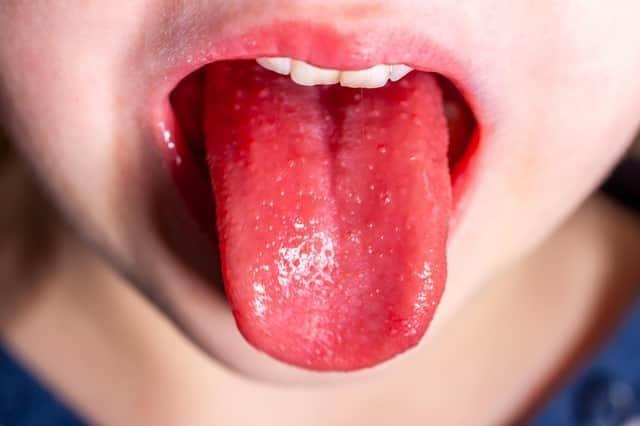Strep A: Leading Leeds GP explains when to take your child to see a doctor or go to a hospital
and live on Freeview channel 276
Dr Amal Paul is a GP based in Roundhay Road, and works as a Primary Care Network clinical director. He said he has recently seen many anxious parents who falsely believe their child has caught Strep A, and said the need to educate parents is greater than ever.
He added that recent media reports around shortages of Amoxycillin are “not helpful” to parents, as other medicines are readily available.
Advertisement
Hide AdAdvertisement
Hide AdScarlet fever is caused by the Strep A bacteria which can, in rare cases, enter the bloodstream and cause the potentially deadly infection called invasive Group A Strep. In recent weeks, cases in the UK have been far higher than usual at at this time of year, with a number of deaths from invasive Strep A diagnosis in children under 10.


Dr Paul said: "When the infection happens, children usually children have a fever – it varies between 37.8 to 39 (degrees). For a couple of days they feel a bit unwell but they keep playing like normal and gradually get better.
"But sometimes it can go the other way and be serious. Then it affects the throat and then children have sore throats, swollen glands on their neck and, if it’s gone to their lungs, they start coughing.
"If it is on the skin, they have skin rashes. The skin gets very rough – a bit like sandpaper.
Advertisement
Hide AdAdvertisement
Hide Ad"The child may have a rash on their tongue – it looks like patches of red.”
The latest data from the UK Health Security Agency shows how many cases of scarlet fever were recorded across England and Wales in the week to December 4. Leeds recorded the second highest number of all local authority areas – behind only the Isle of Wight.
Dr Paul said this has understandably caused concern among parents.
"We are seeing more children than before being brought to us with a sore throat and a temperature,” said Dr Paul. “They are being brought by an anxious parent, and it is completely understandable – we can’t blame them for being concerned.
Advertisement
Hide AdAdvertisement
Hide Ad"But should we see all the children with a sore throat and a temperature at our surgeries, or should we educate the parents and carers to look into the symptoms which can be managed?”
Dr Paul said that since Covid-19, he has seen many parents who no longer have the confidence to manage mild symptoms of illness in their children without seeking medical help.
"This is a huge problem,” he said. "Sometimes you will see a child whose parent has taken their high temperature at 8am and they bring them down in the afternoon.
"The argument, which I completely accept, is that a medically untrained parent will have no confidence when it comes to their child’s illness. So we need to help people differentiate their child being unwell from others [who are seriously ill].
Advertisement
Hide AdAdvertisement
Hide Ad"They have low confidence and the media feeding their genuine concern.
"We need to give people the information and to empower parents. They need to know their children can have a temperature, but when a child has a fever, they should look after the symptoms.”
So what are the red flags parents should look for?
Dr Paul explains: "If your child has a temperature, but no skin rash or vomiting and is eating and drinking, just keep an eye on them – give them paracetamol or ibuprofen and keep them at home.
"If your child is having a fever between 38.5 or 39 degrees, a skin rash and is not eating properly, take advice from the doctor.”
Advertisement
Hide AdAdvertisement
Hide Ad“If your child is not well, they have skin rash, are sloppy and irritable, have a blue tongue or blue lips, you need to ask for urgent medical help. This is the time when a child is seriously ill.”
As Strep A is a bacterial infection, serious cases can be treated with antibiotics. Dr Paul also referred to various media reports that Amoxycillin, a popular antibiotic, is seeing a shortage in certain parts of the country.
“That is fuelling concern for the parents,” he said. “This sort of information does not help parents. Many of them may not know that other medicines are available.
"If Amoxycillin is not available, there are clear guidelines and there should not be any problem. There are other medicines that are available.”
"If you child has a high temperature, skin rash and sore throat, we call it scarlet fever. It can sometimes be very serious and affect the kidneys.”